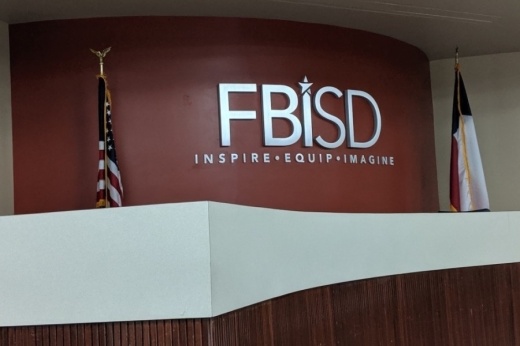Zooming in
FBISD offers over 20 CTE courses, including a new biomedical science program beginning this year, CTE Director Renee Cosby said. The district is also piloting a drone program with the goal of expanding to all high schools for the 2026-27 school year.
Other CTE course include:
- Automotive
- Cosmetology
- Law enforcement
- Agriculture
- Culinary
- Welding
- Health science
- Carpentry
“Our CTE program is crucial to the district’s dedication to inspiring and equipping all students to pursue futures beyond what they can imagine,” Cosby said. “By aligning our curriculum with industry demands, we are actively preparing students to meet the needs of the future workforce, effectively helping to bridge potential skills gaps.”
Data from the October 2023 Kinder Institute for Urban Research's Houston Education Research Consortium showed over two-thirds of Houston-area high school graduates qualifying as “CTE graduates” from 2013-2019.
Why it matters
A 2023 high growth report from the Texas Workforce Commission predicts 762,000 jobs will open by 2030 that both exceed the statewide annual median pay of $43,463. This includes 215 “high-wage occupations” within 13 different industries including construction, manufacturing and health care.
By the numbers
FBISD’s CTE program has remained steady over the past five years with an average annual participation rate of 23,000, or 28%, of its over 80,000 total enrolled students, Cosby said.
“By aligning our programs of study with certifications, we ensure that students acquire theoretical knowledge, develop tangible, marketable skills, and earn credentials that enhance their college applications and employment prospects, preparing them for immediate success in their chosen career paths,” she said.
One more thing
John C. Kennedy, associate provost for Texas State Technical College in Rosenberg, said he has noticed a recent shift in CTE offerings in local school districts. He attributes this growth to the skilled workforce “aging out” and the shift in mindset that skilled work can directly impact the economic growth of a community.
The same sentiment was echoed statewide with Gov. Greg Abbott pushing for the expansion of statewide CTE programs during the 89th Texas Legislative session earlier this year. Lawmakers passed two bills—House Bills 20 and 120—which aim to increase access and funding for career-related curriculum.
- House Bill 20 (filed by Rep. Gary Gates, R-Richmond): Creates the Applied Sciences Pathway program which allows students to concurrently earn certificates from higher education institutions
- House Bill 120 (filed by Keith Bell, R-Forney): Increases school district funding from $50 to $150 per students for the Pathways in Technology Early College High Schools for course credit





